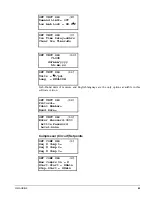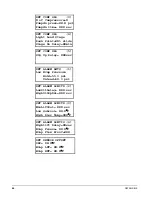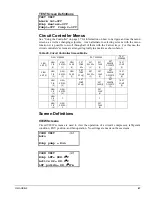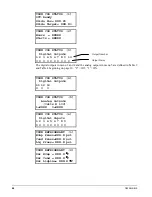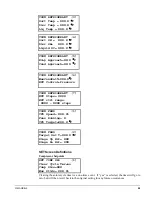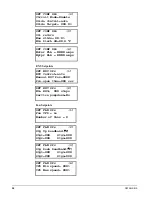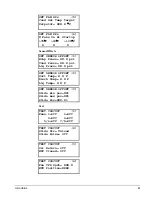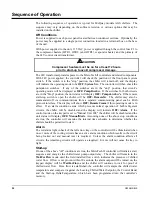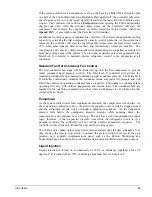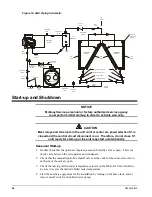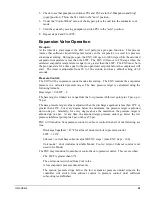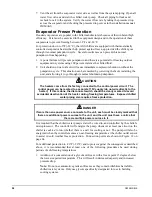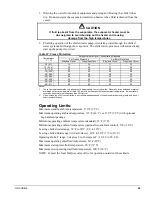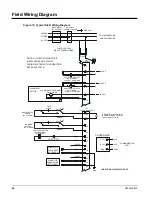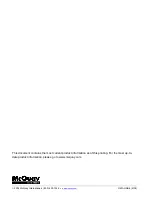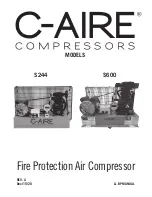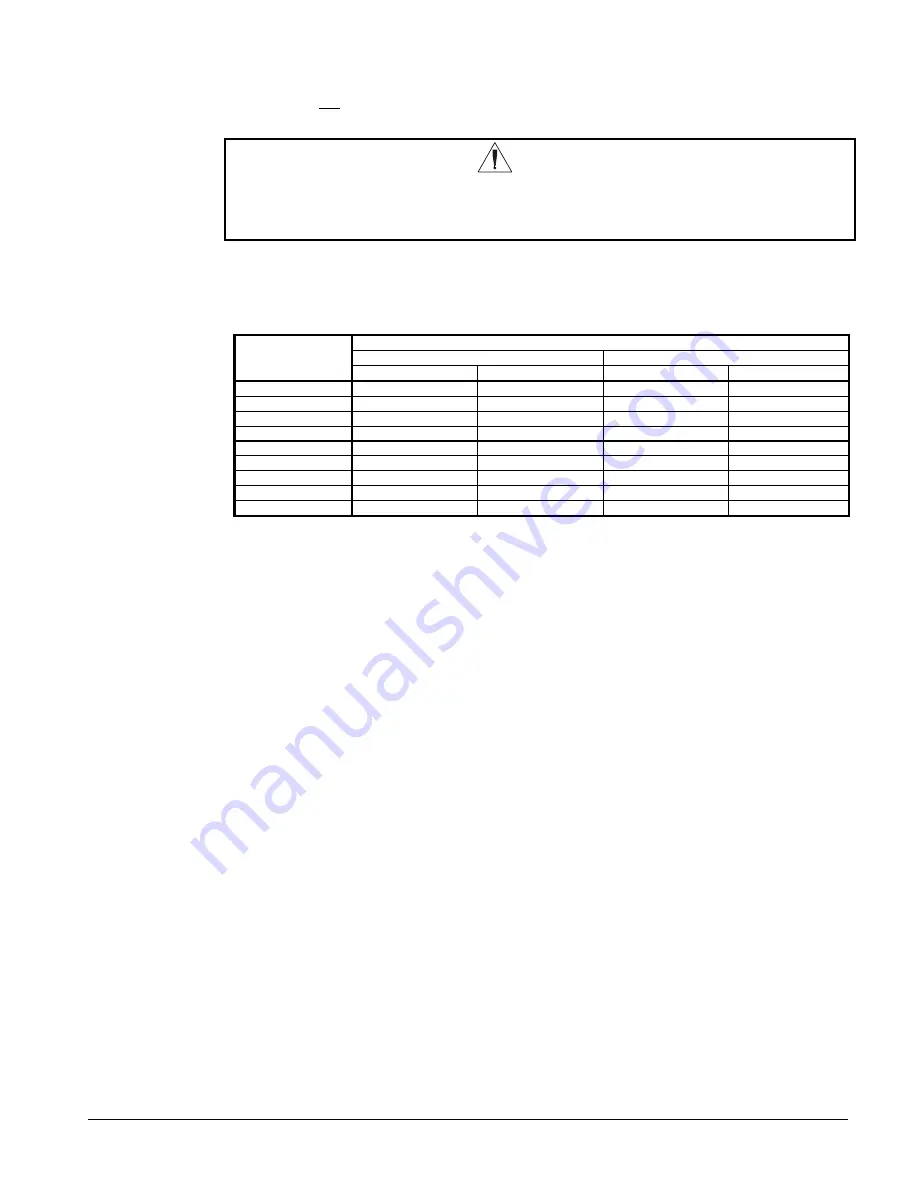
OM AGSB-5
59
2.
Draining the water from outdoor equipment and piping and blowing the chiller tubes
dry. Do not energize the evaporator immersion heaters when fluid is drained from the
vessel.
CAUTION
If fluid is absent from the evaporator, the evaporator heater must be
de-energized to avoid burning out the heater and causing
damage from the high temperatures.
3. Providing operation of the chilled water pump, circulating water through the chilled
water system and through the evaporator. The chiller microprocessor will automatically
start up the pump if so wired.
Table 27, Freeze Protection
Percent Volume Glycol Concentration Required
For Freeze Protection
For Burst Protection
Temperature
°
F (
°
C)
Ethylene Glycol
Propylene Glycol
Ethylene Glycol
Propylene Glycol
20
(6.7)
16 18 11 12
10
(-12.2)
25 29 17 20
0
(-17.8)
33 36 22 24
-10
(-23.3)
39 42 26 28
-20
(-28.9)
44 46 30 30
-30
(-34.4)
48 50 30 33
-40
(-40.0)
52 54 30 35
-50
(-45.6)
56 57 30 35
-60
(-51.1)
60 60 30 35
Notes:
1.
These figures are examples only and cannot be appropriate to every situation. Generally, for an extended margin of
protection, select a temperature at least 10
°
F lower than the expected lowest ambient temperature. Inhibitor levels
should be adjusted for solutions less than 25% glycol.
2.
Glycol of less than 25% concentration is not recommended because of the potential for bacterial growth and loss of
heat transfer efficiency.
Operating Limits:
Maximum standby ambient temperature, 130
°
F (55
°
C)
Maximum operating ambient temperature, 115
°
F (46
°
C), or 125
°
F (52
°
C) with optional
high ambient package
Minimum operating ambient temperature (standard), 35
°
F (2
°
C)
Minimum operating ambient temperature (optional low-ambient control), 0
°
F (-18
°
C)
Leaving chilled water range, 38
°
F to 50
°
F (3
°
C to 10
°
C)
Leaving chilled fluid range (with anti-freeze), 20
°
F to 50
°
F (7
°
C to 10
°
C)
Operating Delta-T range, 6 degrees F to 16 degrees F (10.8 C to 28.8 C)
Maximum operating inlet fluid temperature, 66
°
F (19
°
C)
Maximum startup inlet fluid temperature, 90
°
F (32
°
C)
Maximum non-operating inlet fluid temperature, 100
°
F (38
°
C)
NOTE: Contact the local McQuay sales office for operation outside of these limits.
Summary of Contents for AGS 206A
Page 65: ......

